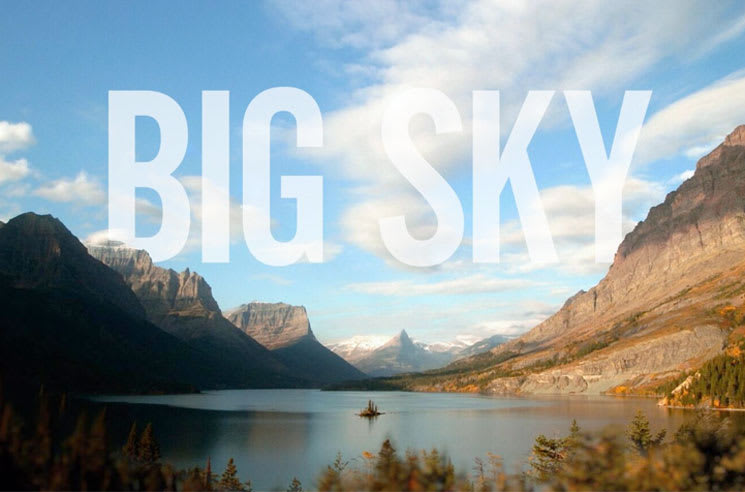David E. Kelley's new ABC drama Big Sky is being called out by multiple Indigenous groups and First Nations leaders over its "incomplete depiction of violence against women and girls."
After a letter was sent last week to ABC Entertainment president Karey Burke and Kelley (who also spearheaded HBO's Big Little Lies), the Great Plains Tribal Chairmen's Association and the Union of British Columbia Indian Chiefs (UBCIC) are adding their voices to the criticisms against the new primetime show.
Based on the 2013 C.J. Box novel The Highway, the story is set in Montana, focusing on the story of two sisters who have been kidnapped by a truck driver on a remote highway. But in reality, the filming location for Big Sky was on unceded Indigenous territory in BC — a province that's tragically home to the Highway of Tears.
Among the various criticisms being levelled against Big Sky is the fact the show fails to address the fact that a disproportionate majority of missing and murdered women and girls are Indigenous.
In a press release, UBCIC secretary-treasurer Kukpi7 Judy Wilson stated that institutions, such as the entertainment media, should consult with First Nations when they address violence against women and girls, and especially not ignore the tragedy facing First Nations over missing and murdered women and girls.
And yet despite the alarmingly high rate of Murdered and Missing Indigenous Women & Girls (MMIWG) in the area the show was filmed, Big Sky is accused of having little if any tribal representation.
Big Sky is "at best, cultural insensitivity, and at worst, appropriation," according to Wilson, adding that the MMIWG crisis requires "an influential corporation like ABC to demonstrate some awareness and cultural competency regarding it."
The UBCIC women's representative, Melissa Moses, added that there are many similarities between BC's Highway of Tears and Box's novel.
"Unfortunately, the violence and gender-based genocide represented by the Highway of Tears is horrifically prevalent in Montana where 26 percent of missing persons have been identified as Native American, despite tribal members only making up seven per cent of the population," Moses stated.
"ABC now has the invaluable opportunity to be our ally, to show respect and compassion to victims and impacted family members and loved ones, and to help inform the public in both Canada and the United States of this international and national crisis and dark truth."
A. Gay Kingman, executive director of the Great Plains Tribal Chairmen's Association, added: "Making the abduction and trafficking of women for primetime entertainment is bad enough. Erasing the real-life tragedy of the Murdered and Missing Indigenous Women and Girls (MMIWG) crisis is unconscionable. We live with the consequences of this loss and trauma on a daily basis, but ABC won't even acknowledge it, even after they've been given an opportunity to do so."
UBCIC has echoed the previous request that Big Sky should add information during the show's credit to direct viewers to the documentary Somebody's Daughter, which delves into the MMIWG crisis.
After a letter was sent last week to ABC Entertainment president Karey Burke and Kelley (who also spearheaded HBO's Big Little Lies), the Great Plains Tribal Chairmen's Association and the Union of British Columbia Indian Chiefs (UBCIC) are adding their voices to the criticisms against the new primetime show.
Based on the 2013 C.J. Box novel The Highway, the story is set in Montana, focusing on the story of two sisters who have been kidnapped by a truck driver on a remote highway. But in reality, the filming location for Big Sky was on unceded Indigenous territory in BC — a province that's tragically home to the Highway of Tears.
Among the various criticisms being levelled against Big Sky is the fact the show fails to address the fact that a disproportionate majority of missing and murdered women and girls are Indigenous.
In a press release, UBCIC secretary-treasurer Kukpi7 Judy Wilson stated that institutions, such as the entertainment media, should consult with First Nations when they address violence against women and girls, and especially not ignore the tragedy facing First Nations over missing and murdered women and girls.
And yet despite the alarmingly high rate of Murdered and Missing Indigenous Women & Girls (MMIWG) in the area the show was filmed, Big Sky is accused of having little if any tribal representation.
Big Sky is "at best, cultural insensitivity, and at worst, appropriation," according to Wilson, adding that the MMIWG crisis requires "an influential corporation like ABC to demonstrate some awareness and cultural competency regarding it."
The UBCIC women's representative, Melissa Moses, added that there are many similarities between BC's Highway of Tears and Box's novel.
"Unfortunately, the violence and gender-based genocide represented by the Highway of Tears is horrifically prevalent in Montana where 26 percent of missing persons have been identified as Native American, despite tribal members only making up seven per cent of the population," Moses stated.
"ABC now has the invaluable opportunity to be our ally, to show respect and compassion to victims and impacted family members and loved ones, and to help inform the public in both Canada and the United States of this international and national crisis and dark truth."
A. Gay Kingman, executive director of the Great Plains Tribal Chairmen's Association, added: "Making the abduction and trafficking of women for primetime entertainment is bad enough. Erasing the real-life tragedy of the Murdered and Missing Indigenous Women and Girls (MMIWG) crisis is unconscionable. We live with the consequences of this loss and trauma on a daily basis, but ABC won't even acknowledge it, even after they've been given an opportunity to do so."
UBCIC has echoed the previous request that Big Sky should add information during the show's credit to direct viewers to the documentary Somebody's Daughter, which delves into the MMIWG crisis.




